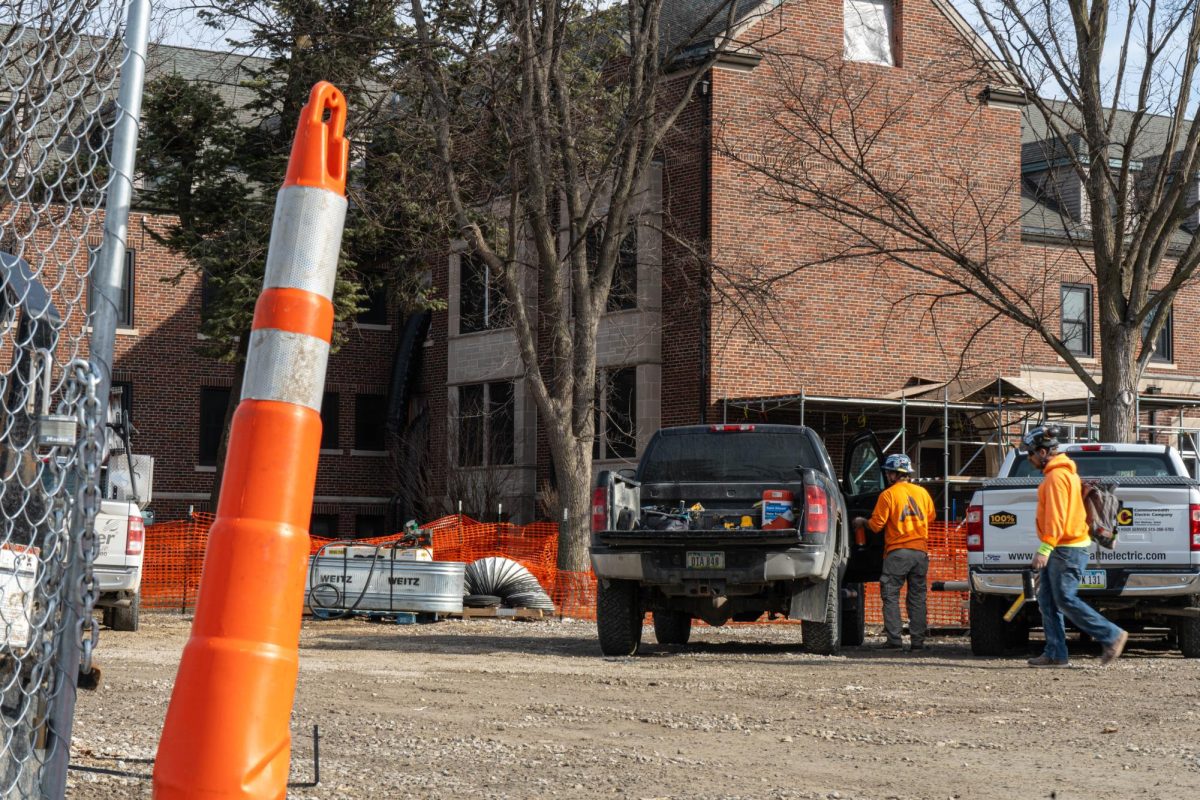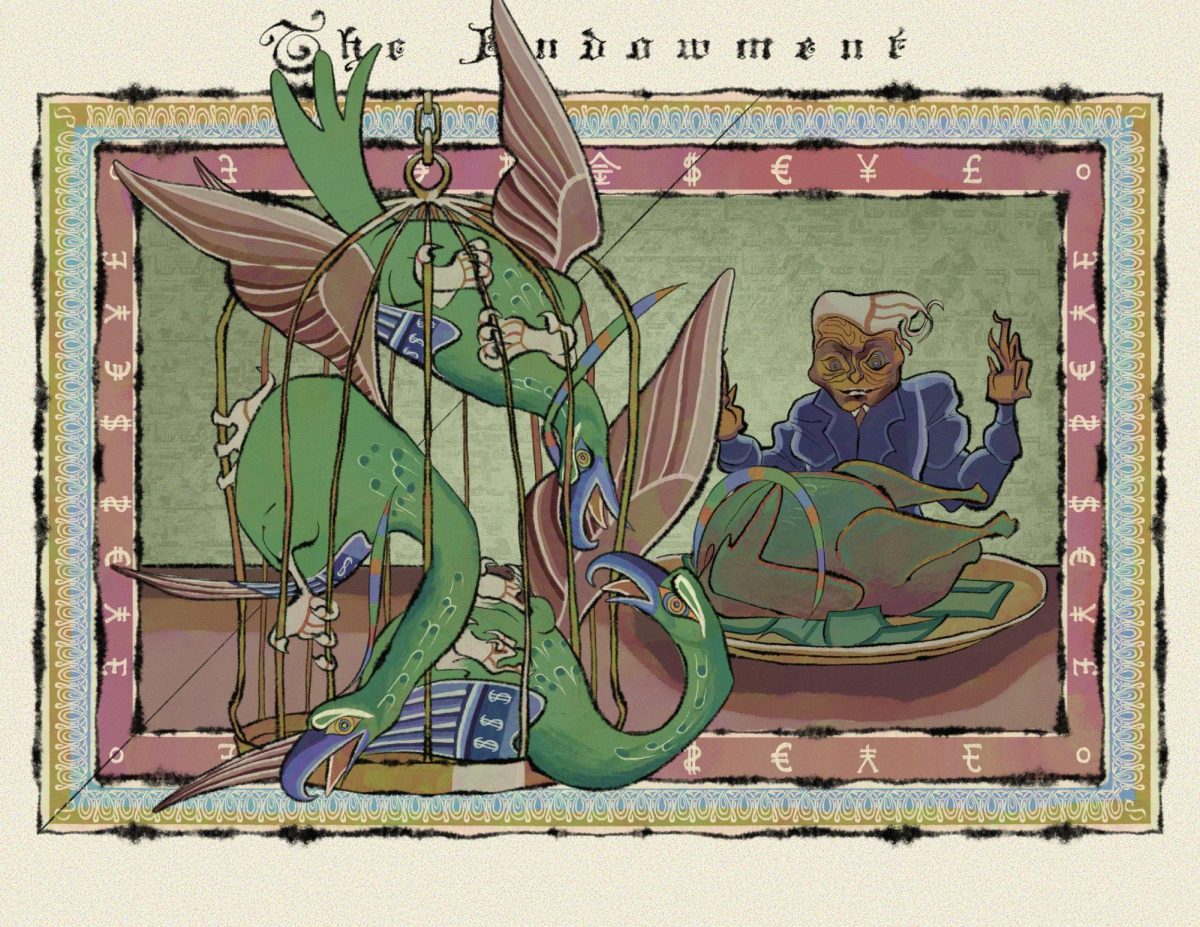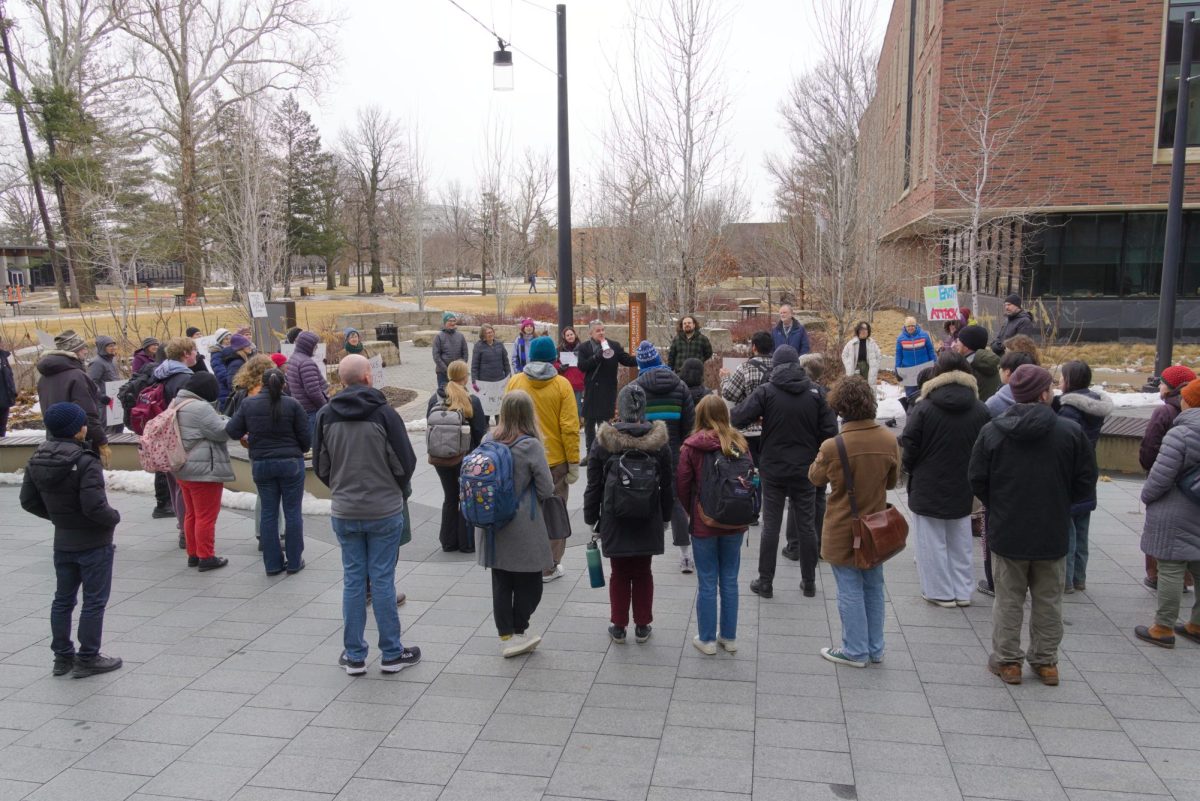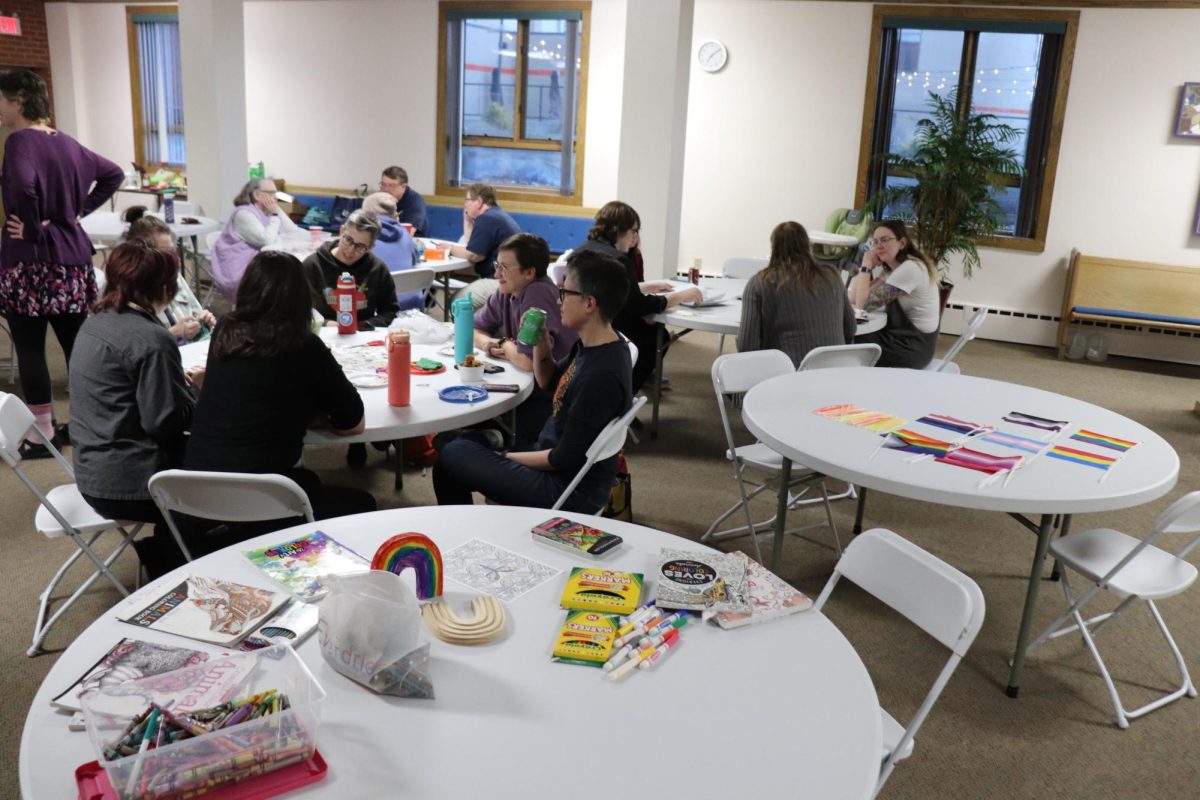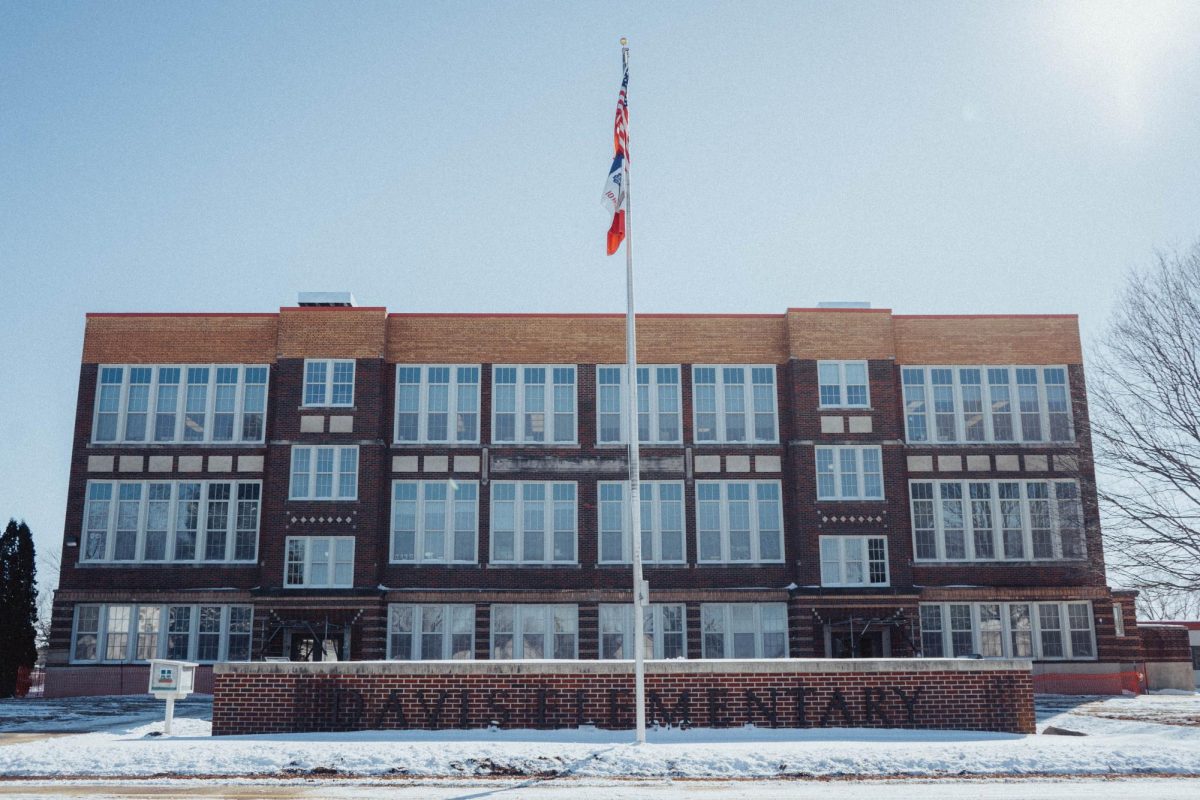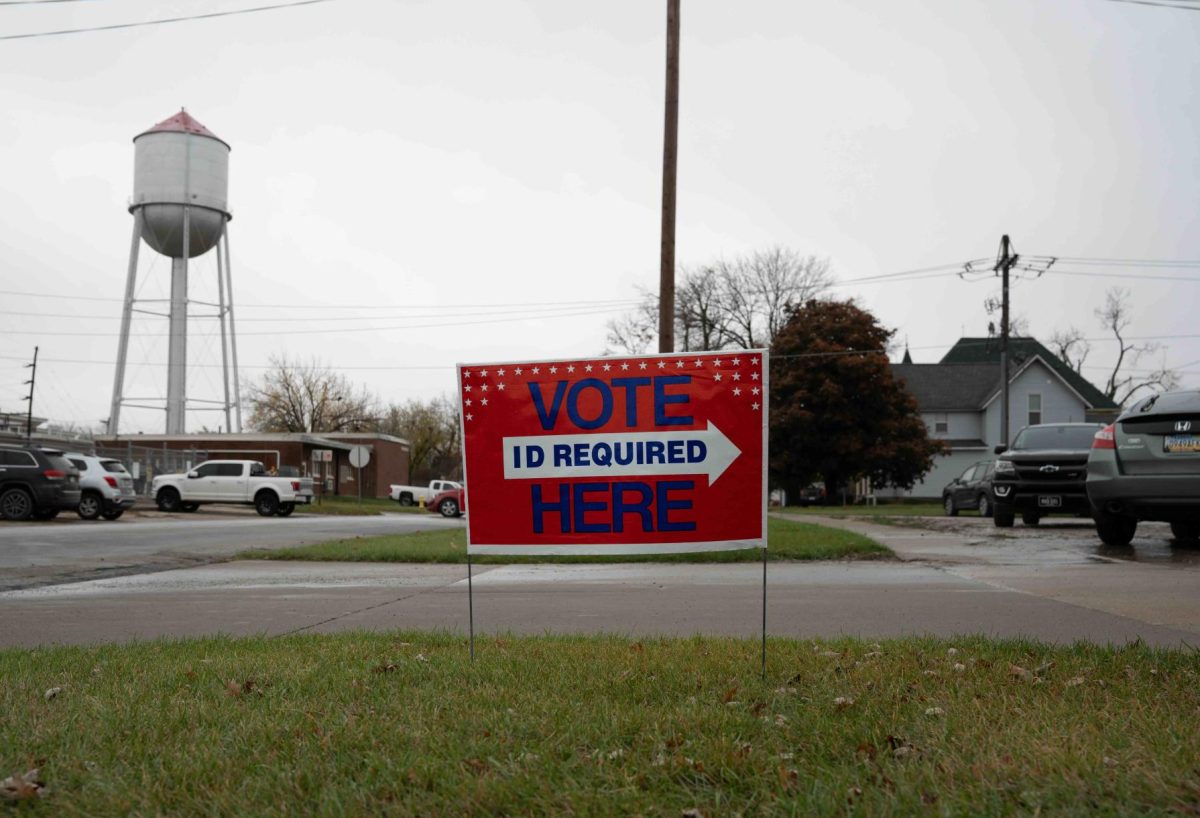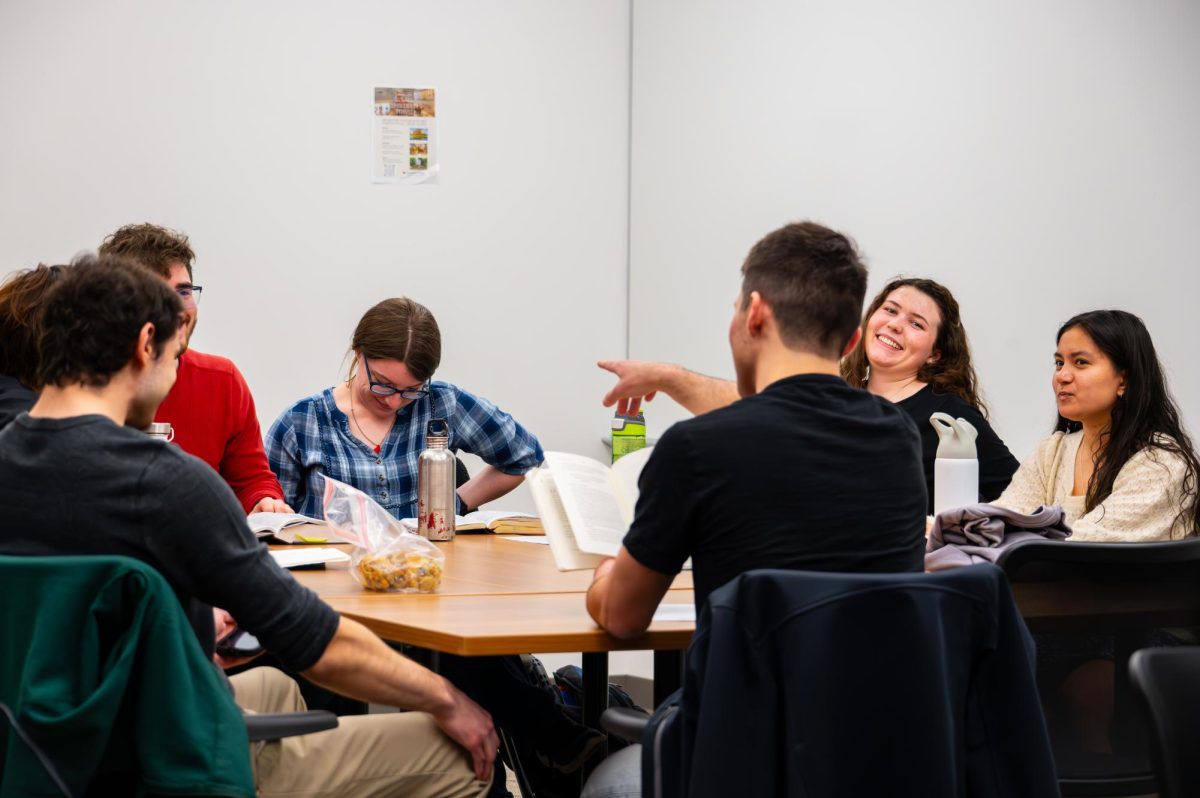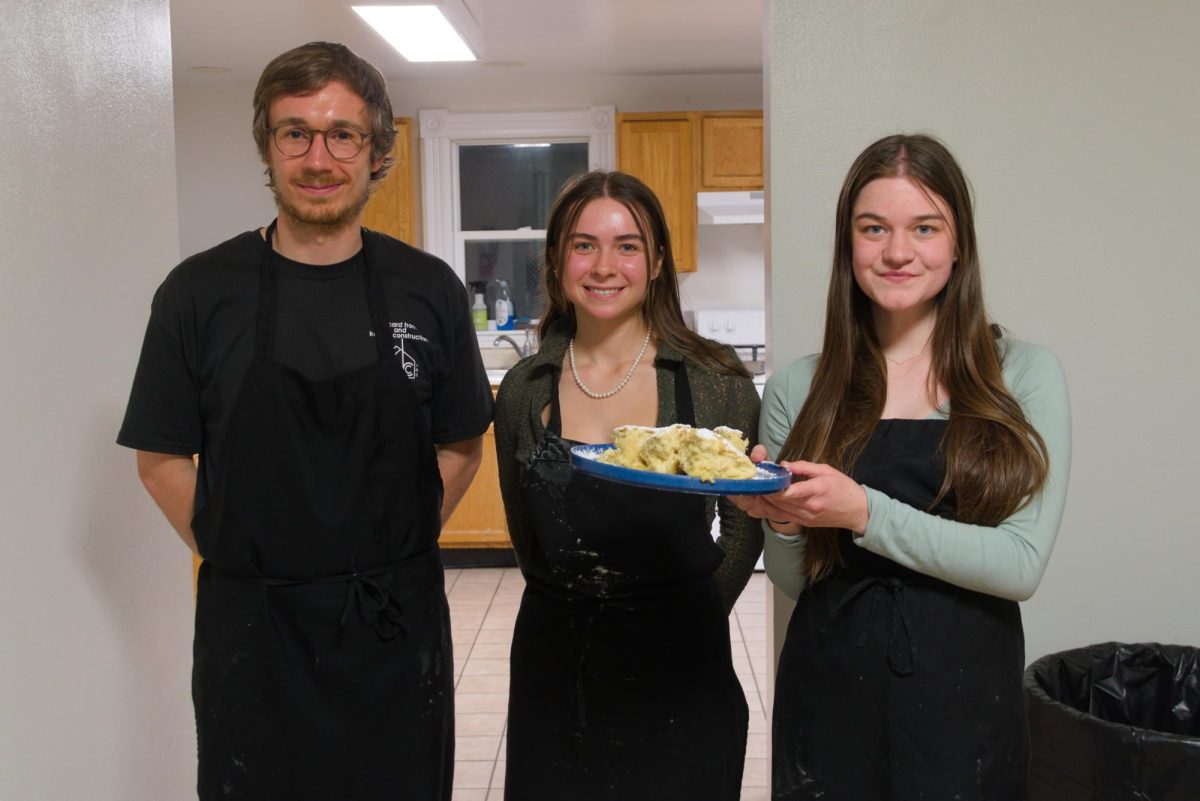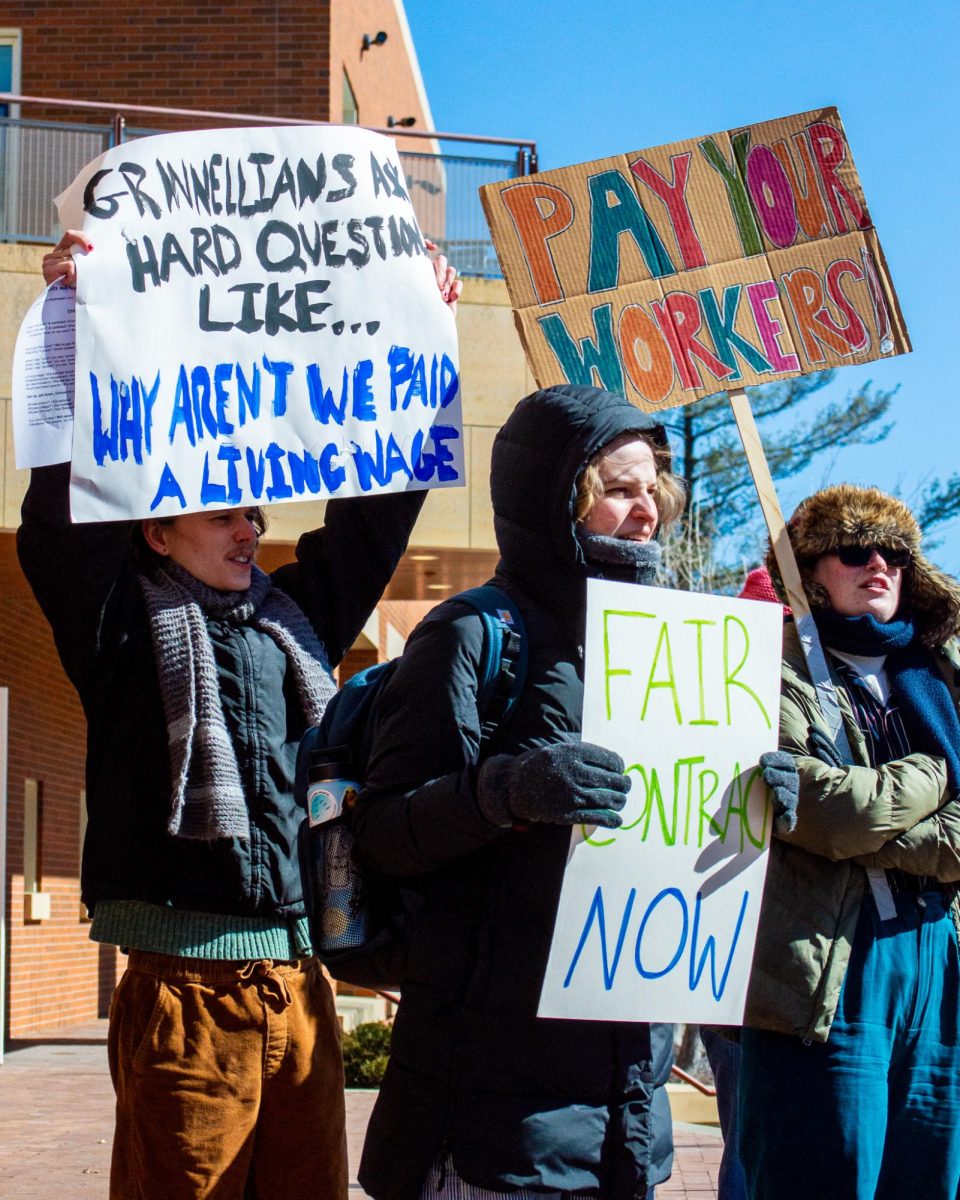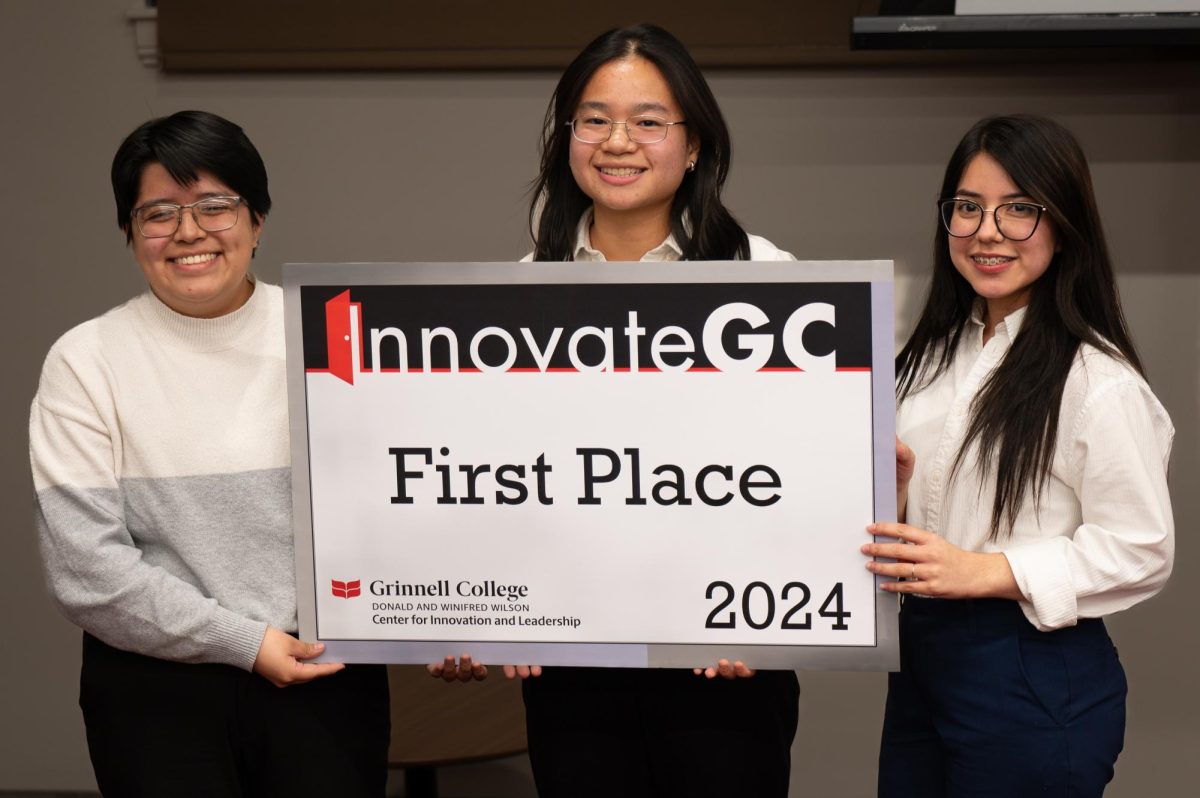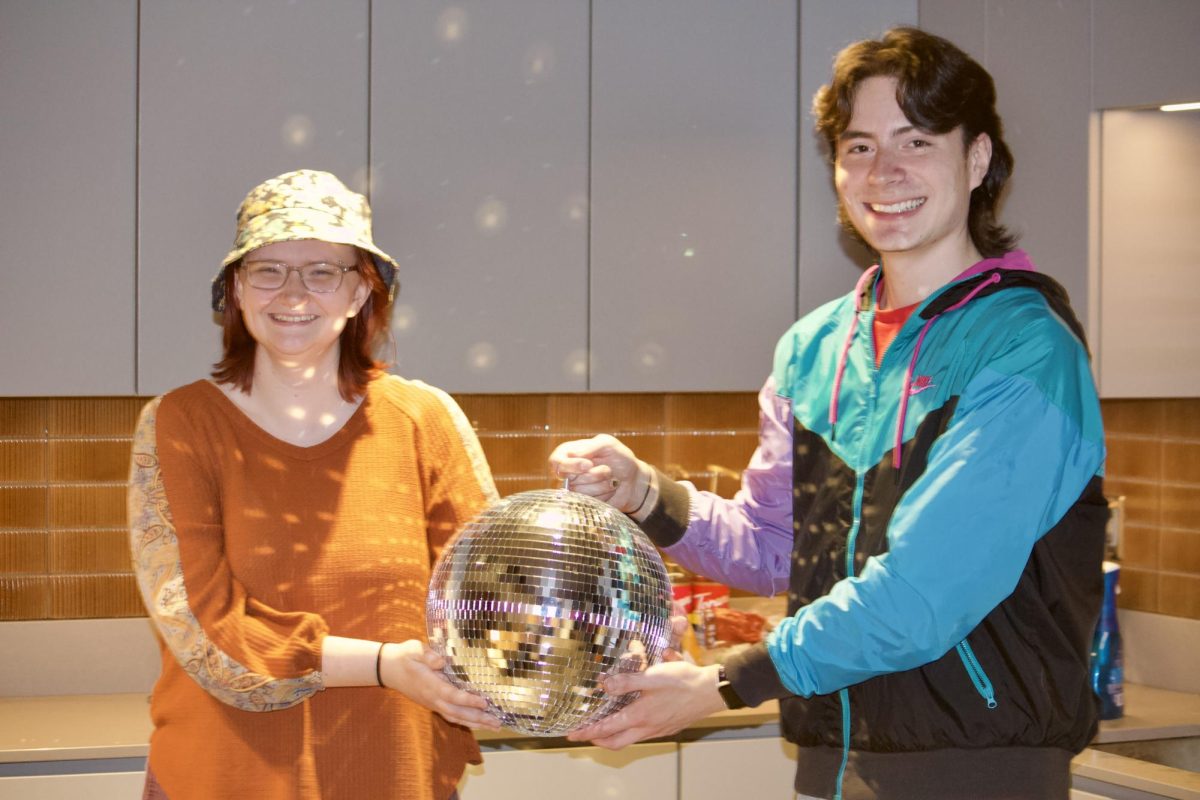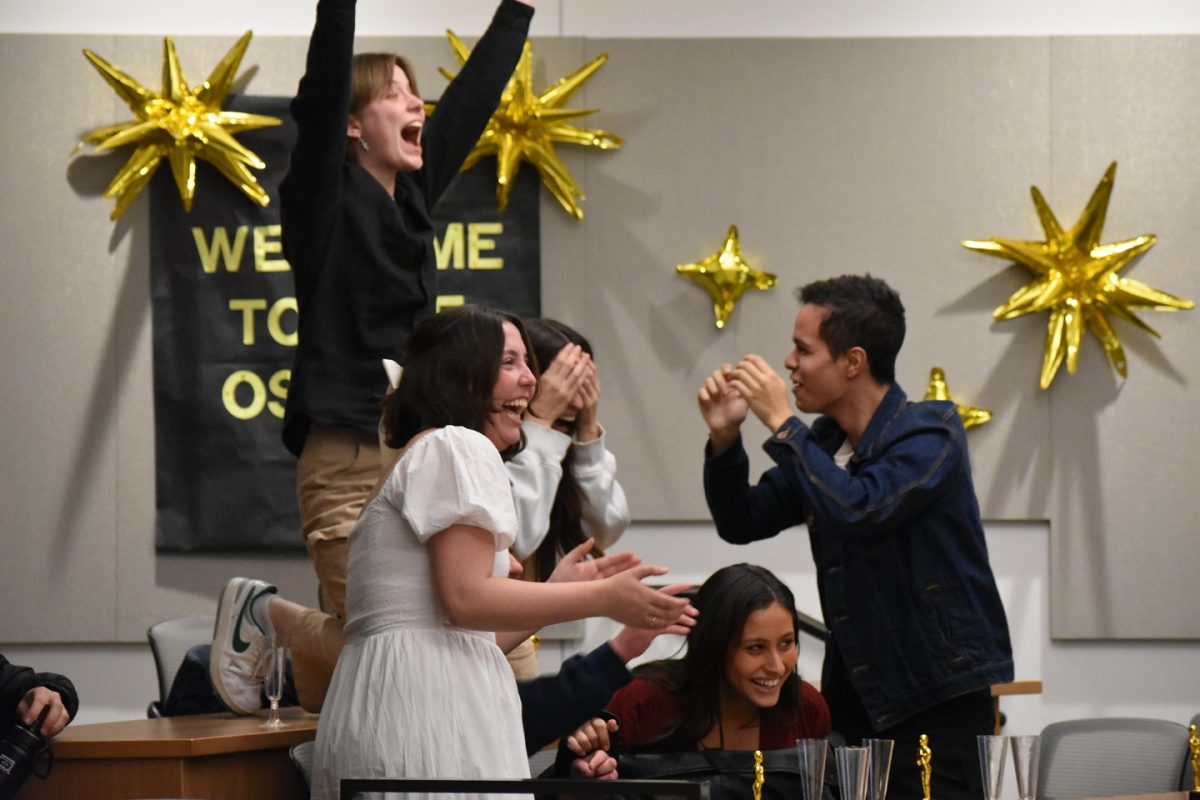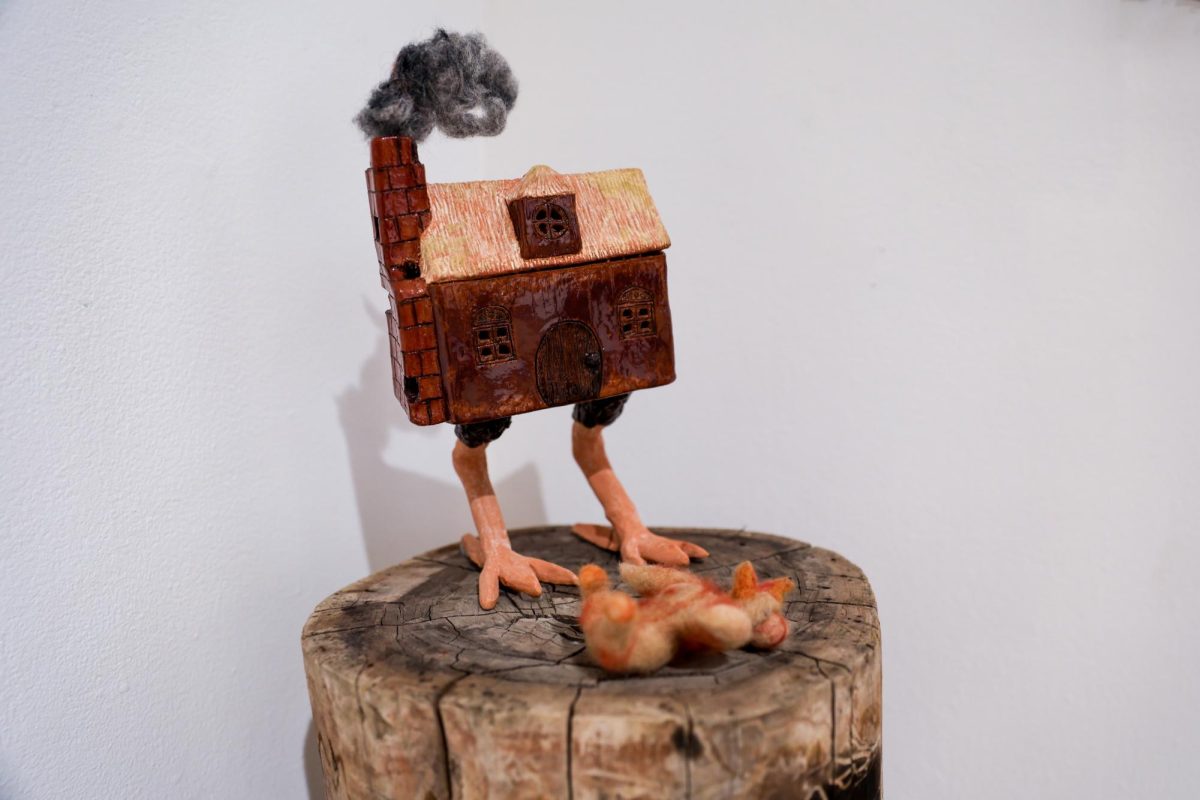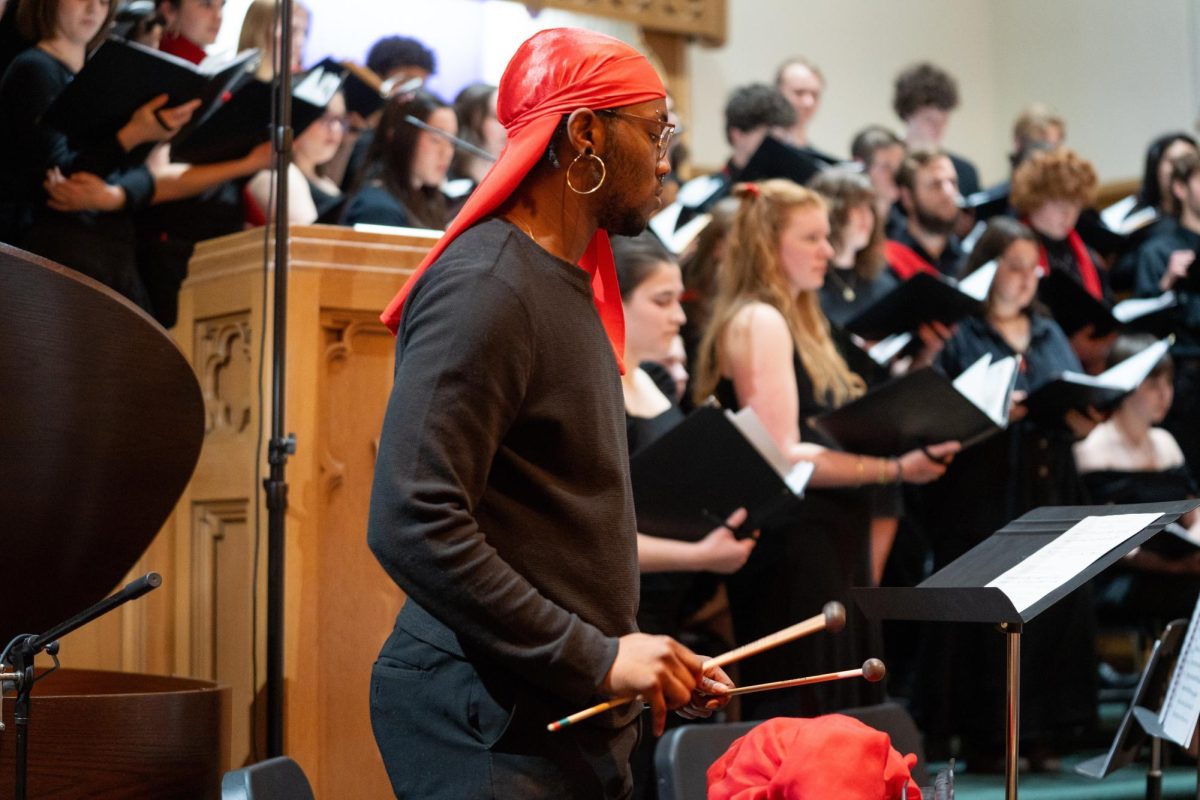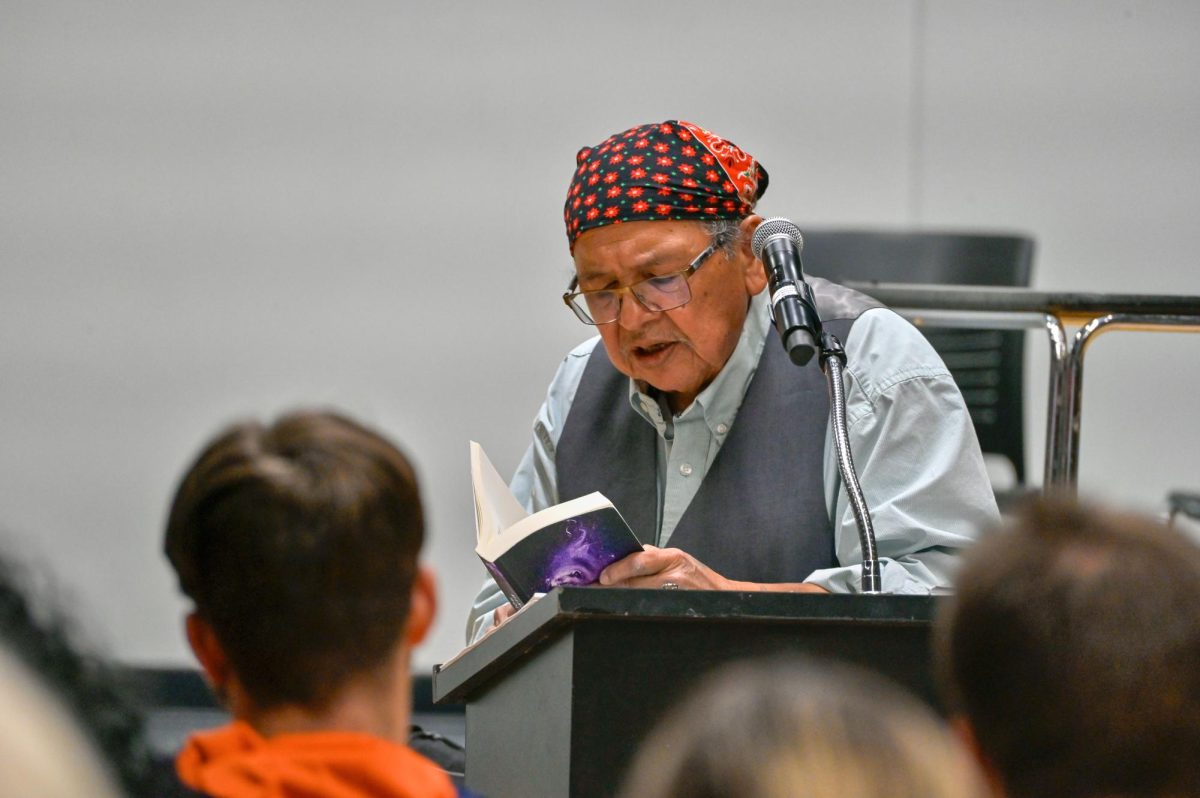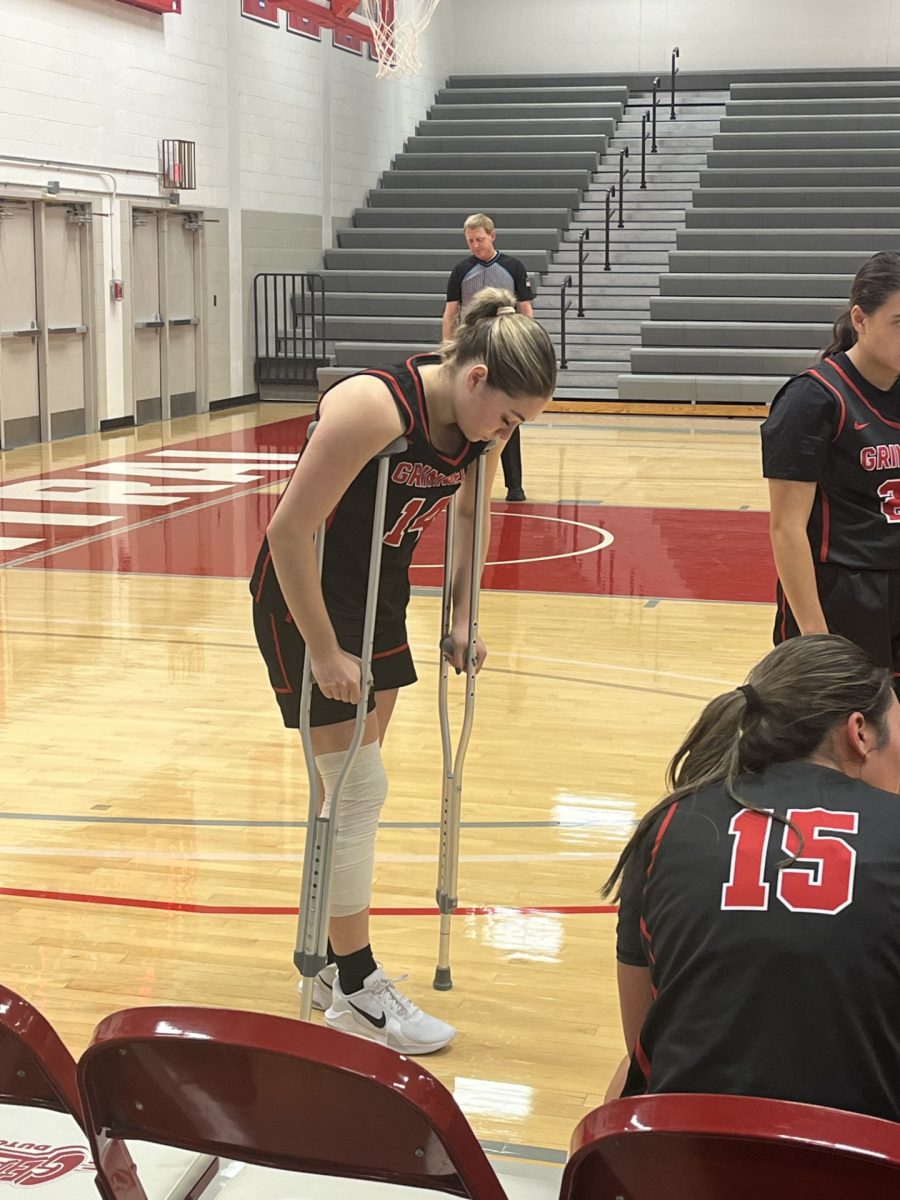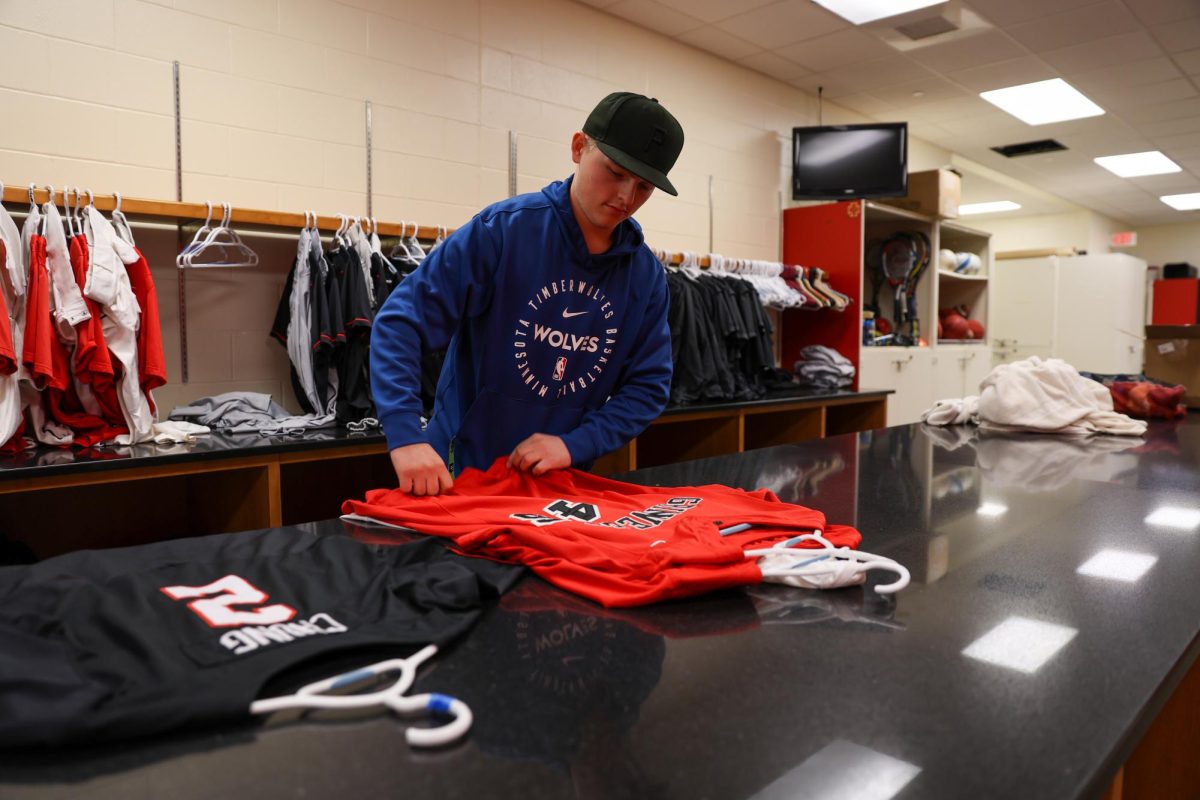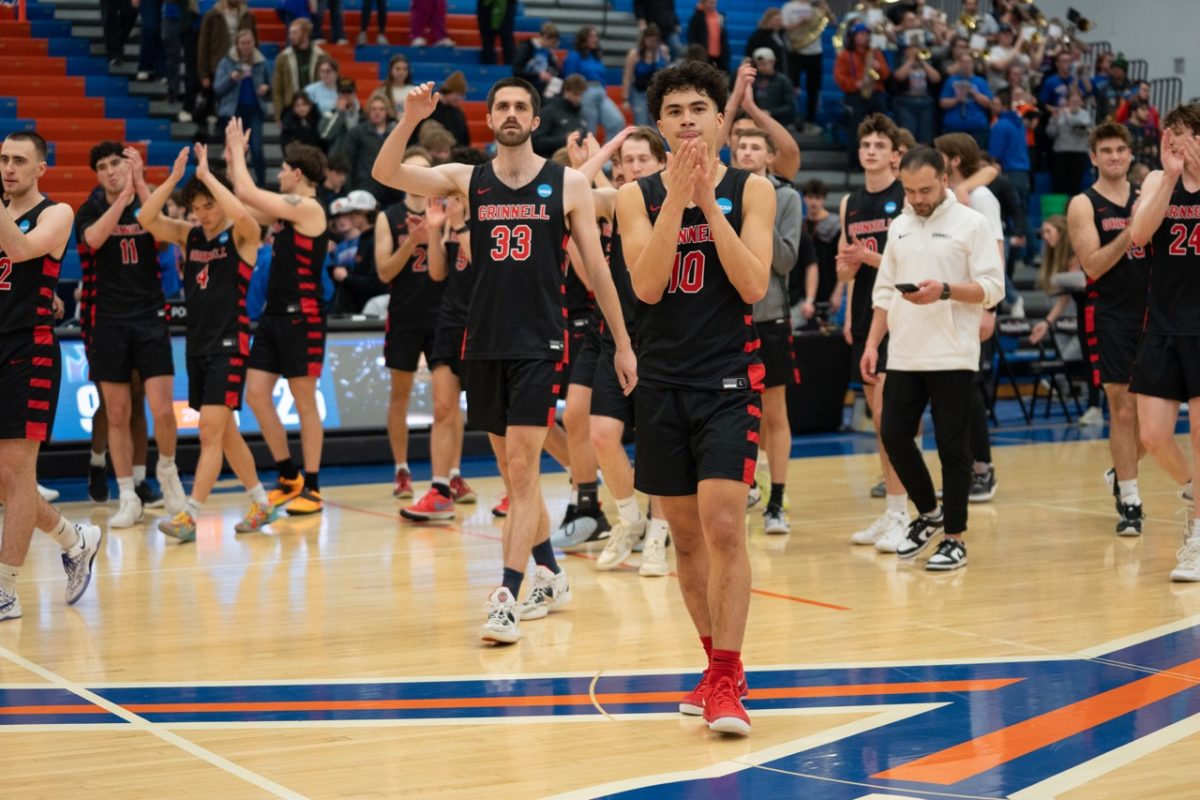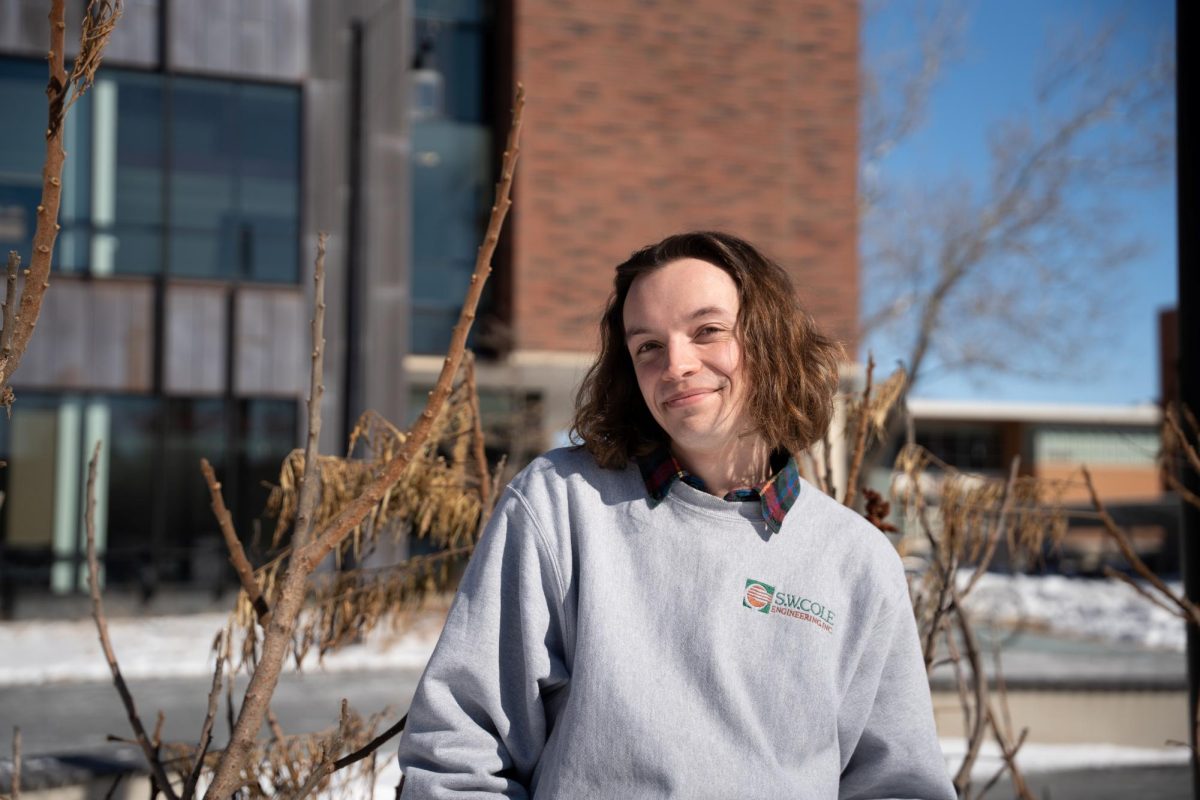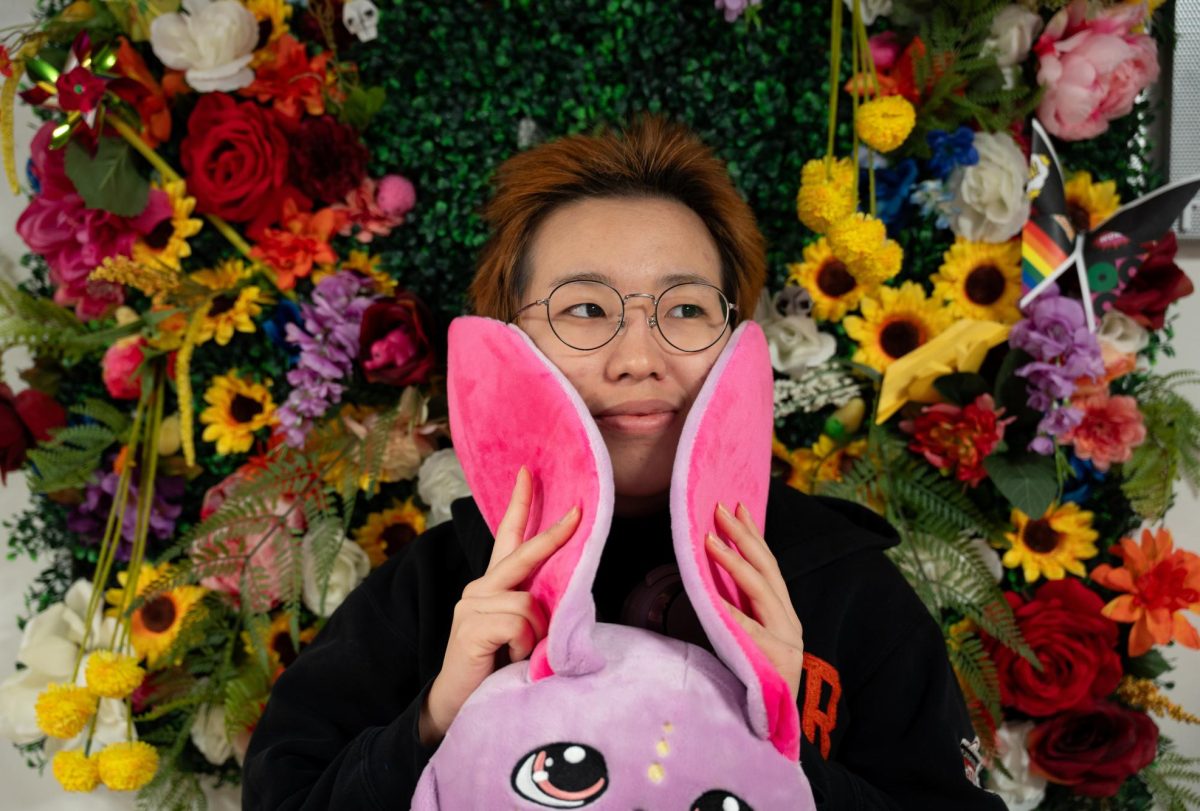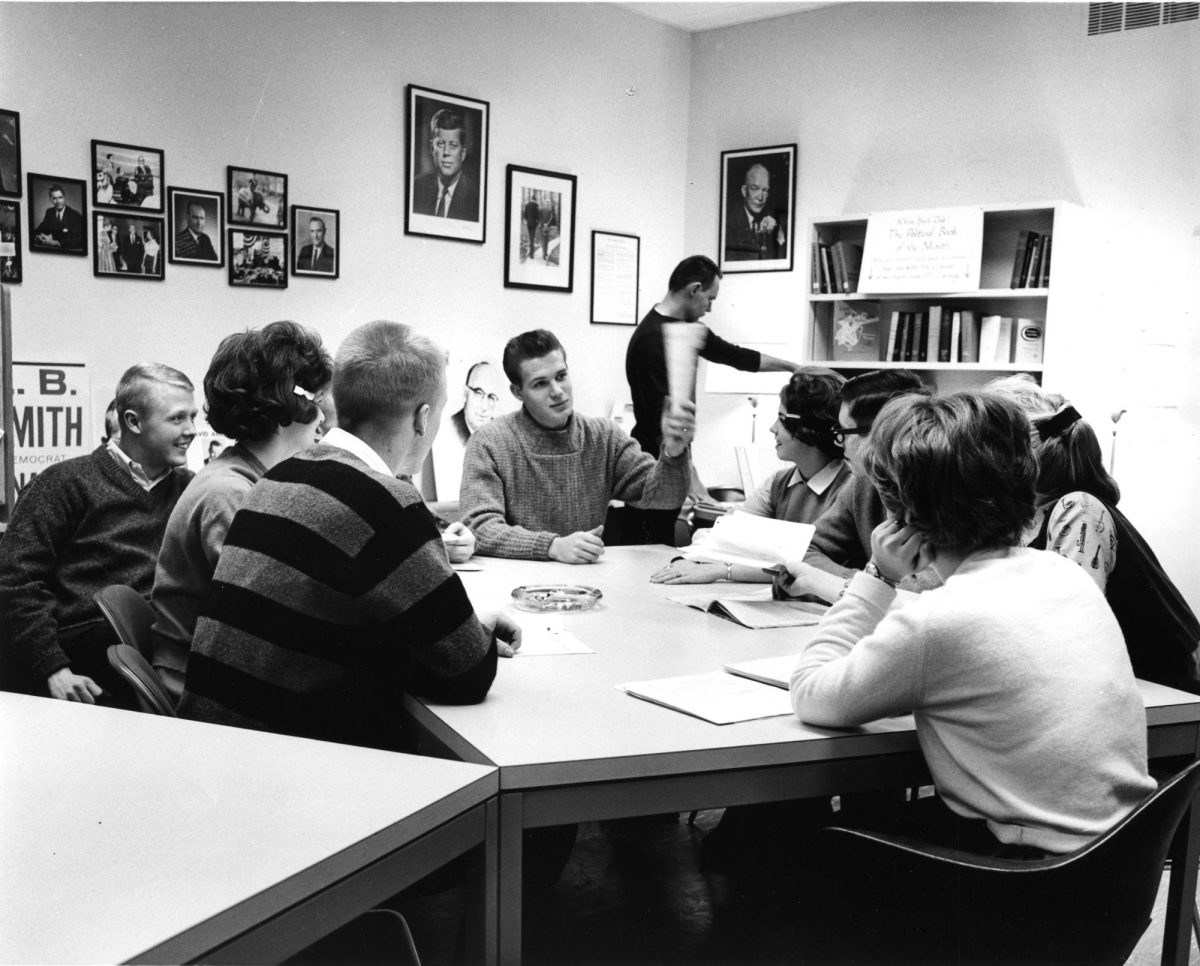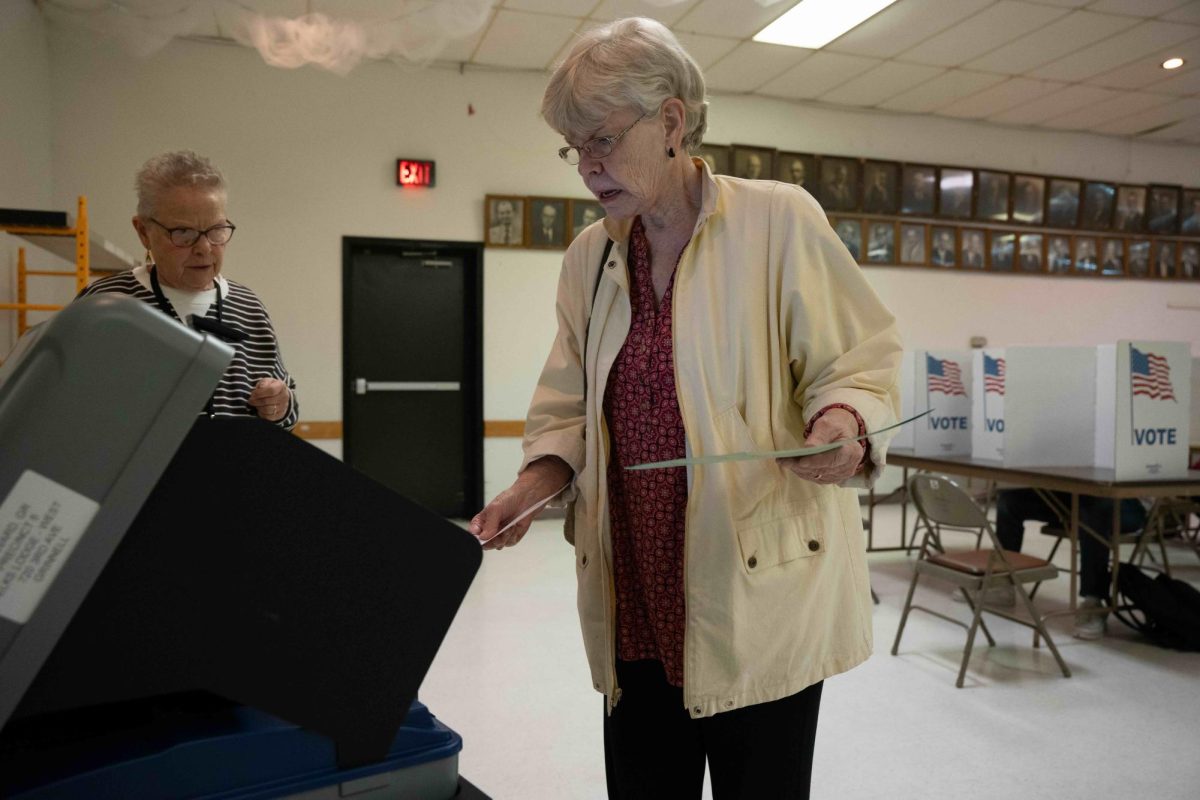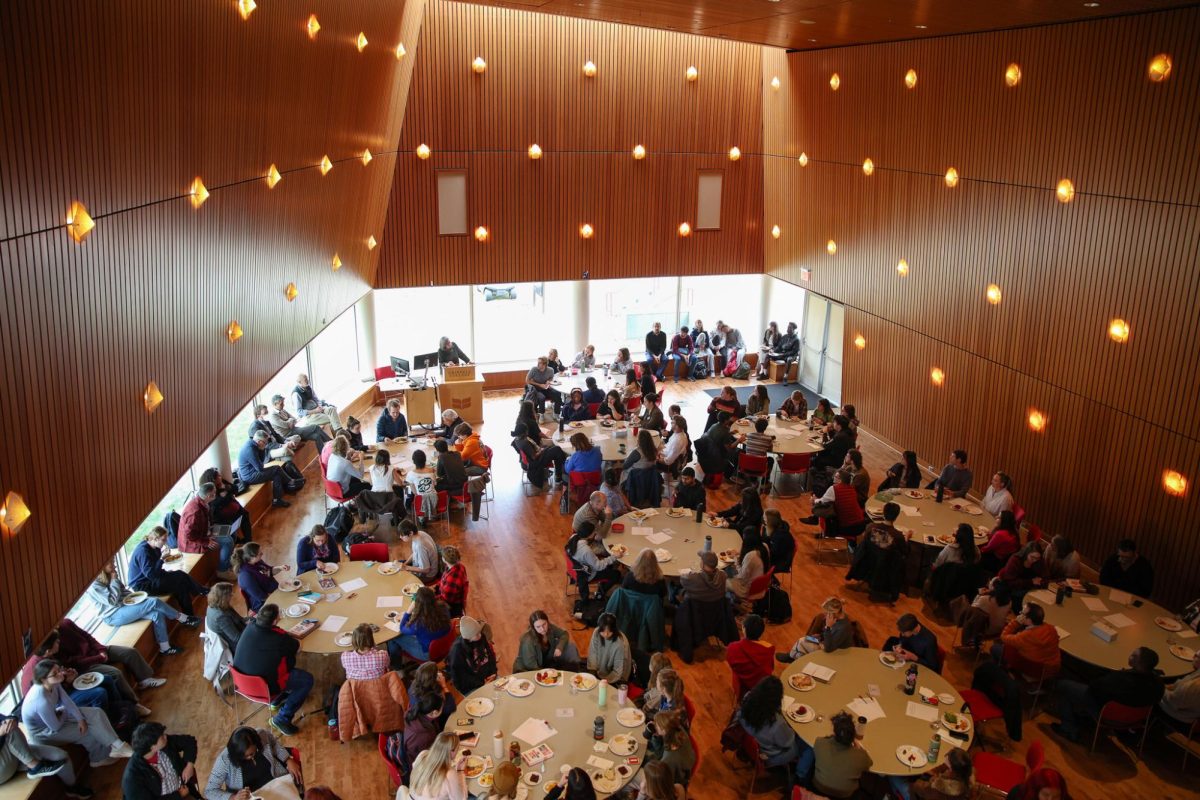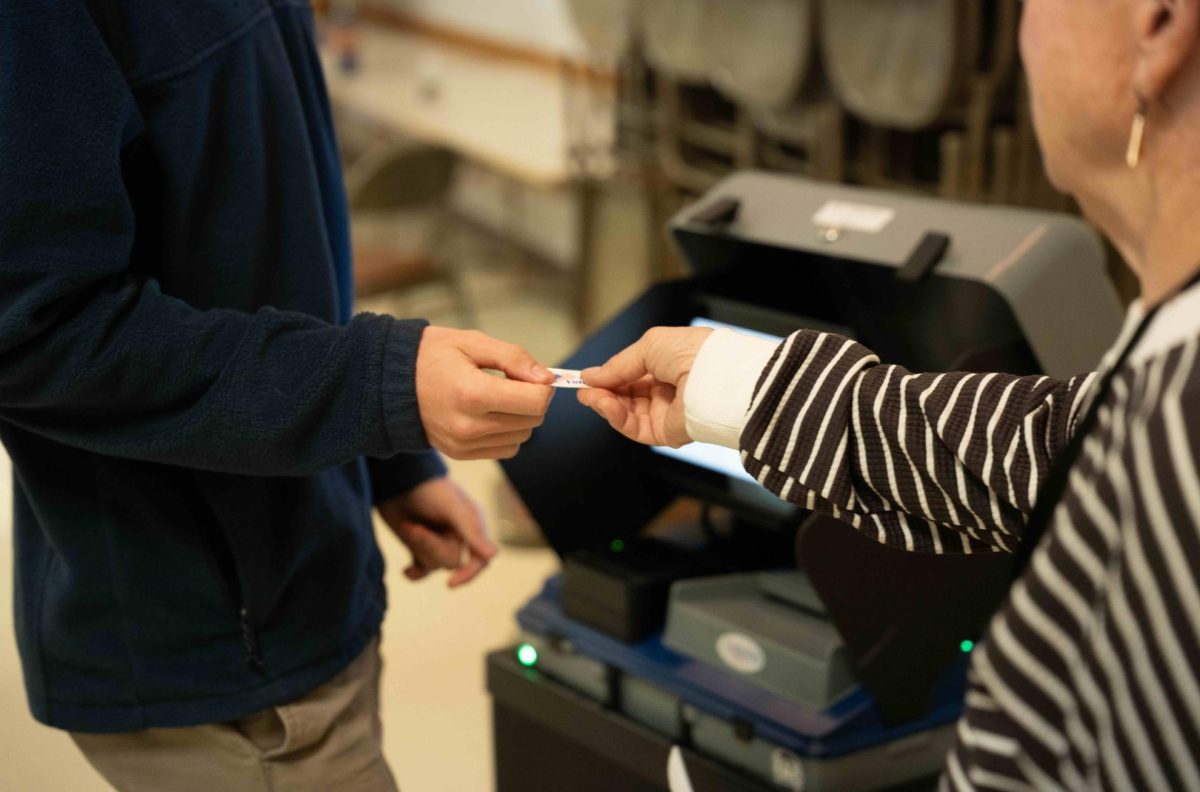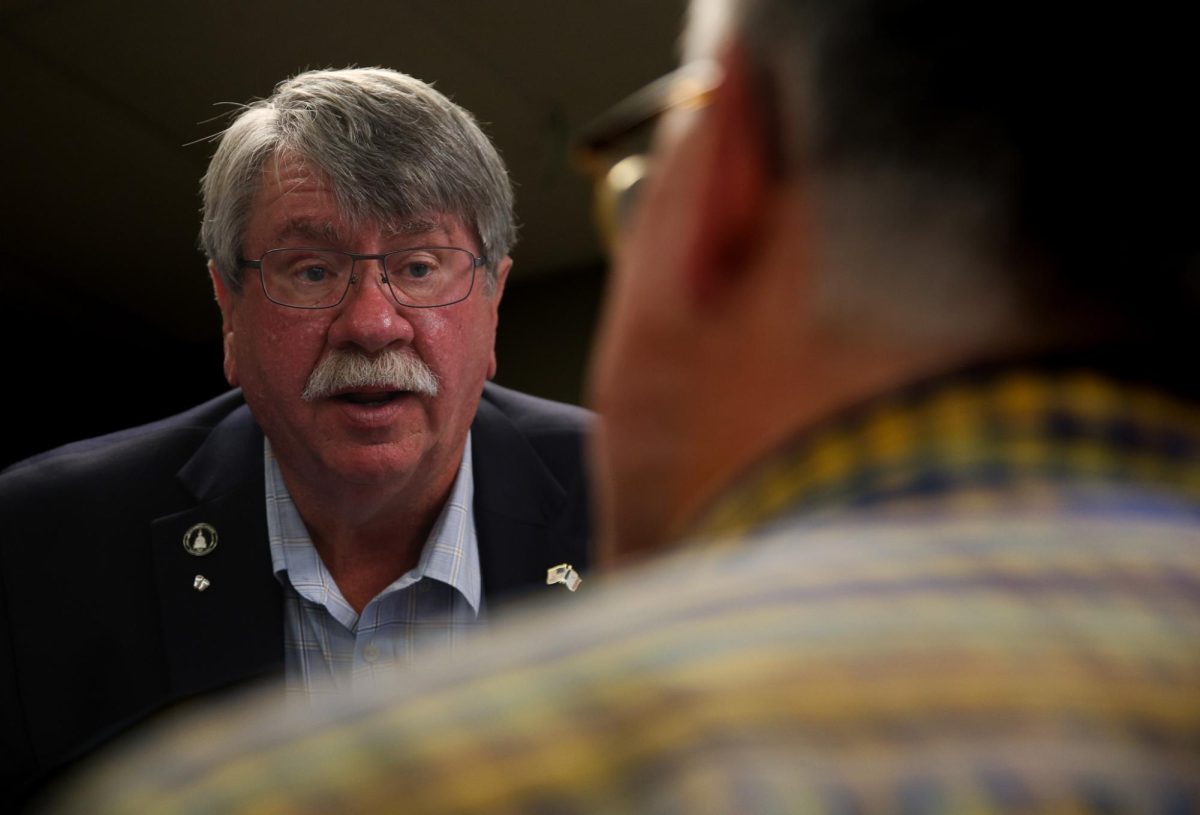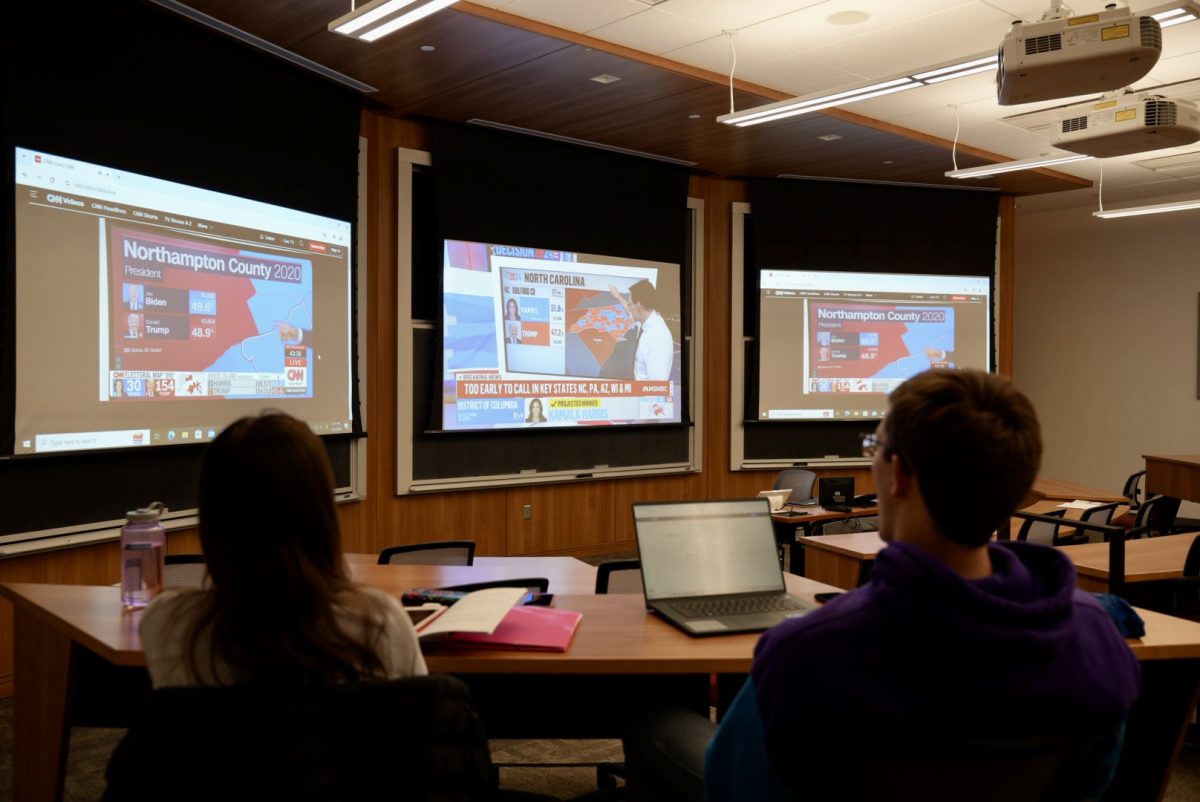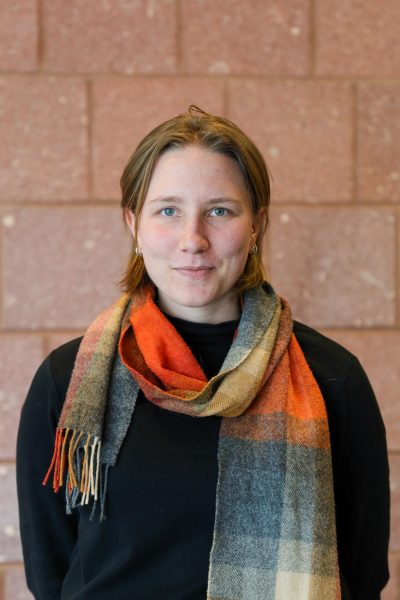On Sept. 24, the Program for Practical Political Education (PPPE) helped register nearly 300 students to vote in the Nov. 4 election in Poweshiek county. Run by David Harrison, the current interim director of PPPE, the scope of the program has changed since its founding in the 1959.
In 1959, Professor Edwin Gilmour, political science, established the Program in Practical Political Education (PPPE) to get students interested and involved in American two-party politics. In a 2012 Mentored Advanced Project (MAP) accounting the rise and fall of the program, Anna Bosak `12 wrote that Gilmour “saw a student body with the potential to meaningfully participate in local, state and national politics and to study practical politics, but lacking the will to do so.”
“The only realistic and effective way an individual may contribute to the retention and refinement of representative democracy in America is to participate, wholeheartedly and proudly, in the political party of his choice,” Gilmour said in the 1959-1960 annual report of PPPE’s activities on campus to the Maurice and Laura Falk Foundation.
Using grants from the Falk Foundation and funding from the College itself, Gilmour created a program to engage students in partisan politics through hands-on practice. Through the PPPE, Gilmour brought hundreds of prominent political figures to visit campus, revitalized the Young Republican and Young Democrats clubs, engaged students in mock national conventions and elections and created new political internship opportunities for students.
Gilmour’s efforts produced widespread student involvement with the program. When the PPPE was first established, the Young Democrats and Young Republicans clubs boasted few members. Under the guidance and funding of PPPE, both clubs became more active, running their own mock national conventions, campaigning for various candidates and engaging in discussion of policy and policy making. By the mid- 1960s, 40 percent of students were registered members of either club, according to Bosak’s 2012 MAP.
Additionally, PPPE brought many political figures to Grinnell as guest lecturers and Politicians-in-Residence. Two of the most prominent politicians brought to campus for residency were former Presidents Harry Truman in October 1963 and Dwight Eisenhower in May 1965.
“I’ve been on more than 100 college campuses, but never has an attempt been made to use my time so advantageously,” President Truman said in a 1963 article, “Most places I am asked to give a major convocation address, then whisked off to some corner to talk with faculty members and other dignitaries. Here at Grinnell I was in constant contact with students.”
During their residency, politicians including the two former presidents spent two to three days on campus, eating with students, attending classes, giving lectures and even sleeping in dorms.
This partisan politic’s place on campus was not to last as students felt increasingly alienated by local and national governments, Bosak wrote.
Before the 1972 election, party primaries were much less important. Candidate selection happened in “smoky back rooms” and the party’s decision-making process was only influenced by party officials, Harrison said. Today, however, conventions are no longer a source of decision-making as grassroots organizations and individual donors have more influence in who gets elected through primaries, donations and lobbying.
Under these circumstances, PPPE, which initially aimed to make the “smoky back rooms” more accessible, lost its function. The program faced additional hurdles as the College, facing budgetary issues, drastically cut funding to the program, leading to Gilmour’s eventual resignation in the spring of 1970.
Changing political practices eliminated the conditions that provided for the heyday of PPPE, but its legacy remains. Since the retirement of its former director, PPPE has remained on campus with a focus shifted from engaging students in partisan politics to ensuring that students are aware of the electoral process.
Harrison largely attributes the de-partisanization of PPPE to a few factors. The growing international student body population decreased the personal importance of learning about and engaging in the American political system. Additionally, as a liberal arts college in the current politically polarized climate, the College receives less attention from the Republican party, preventing engagement in partisan politics.
“Grinnell is seen as being an island of Democrats within a Republican county,” Harrison said.
That being said, not all of PPPE’s original practices no longer have a place on campus.
“PPPE brought to campus and made people aware of elected officials who worked to write laws,” Harrison said. “[Today’s] students don’t know what is being discussed at the state or national levels any more, what is going on in the Iowa State Legislature.”
Bringing politicians and lawmakers back to campus could break down the processes and mechanisms that exist inside our government, Harrison said.
While PPPE’s presence is limited today, many of the activities sponsored by the program remain and are coordinated by the Joe Rosenfield Program. The Rosenfield program, directed by Ed Cohen, professor of history, focuses on public affairs, international relations and human rights with the goal that it “prepares students for a lifetime of civic engagement and connects the Grinnell community to the broader social and political issues that define the world beyond Grinnell,” according to the College’s website. Similarly to PPPE, the program hosts lecturers and funds internships, with a broader political outlook.
“We’re a more broadly educational group at Rosenfield,” Cohen said. “We also have people who work at NGOs [non-governmental organizations] or who work on issues connected to international politics and non-American politics and things like that. Our mission has always been somewhat broader, broader in the sense that the issue areas we cover are more diverse.”
As the Rosenfield program tackles broader political issues, PPPE will continue its initial goal of engaging the larger student body in politics.
“Elections will always be important, therefore PPPE will always have a place on campus,” Harrison said.

